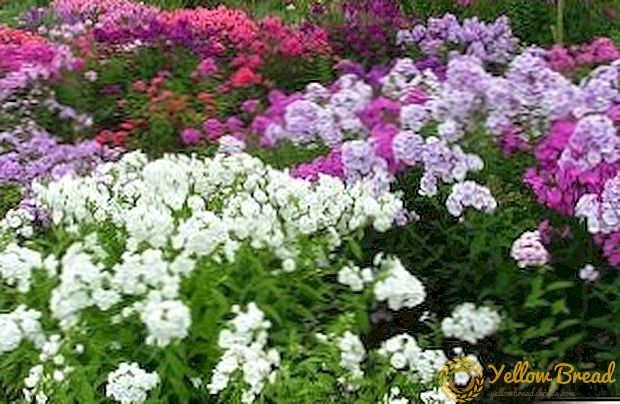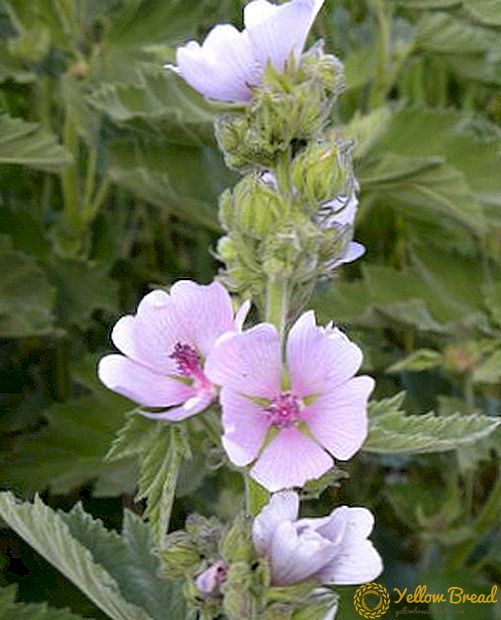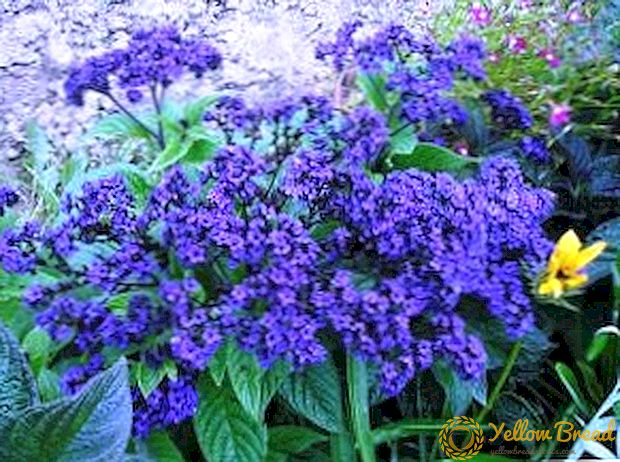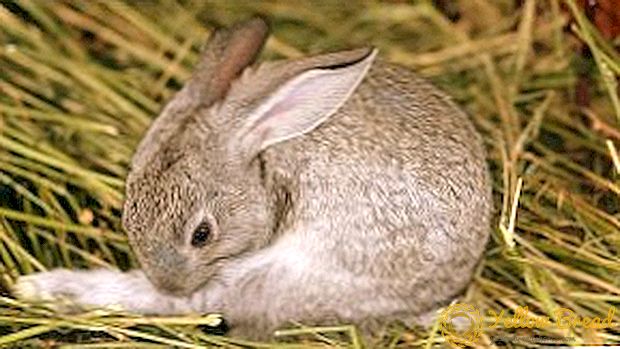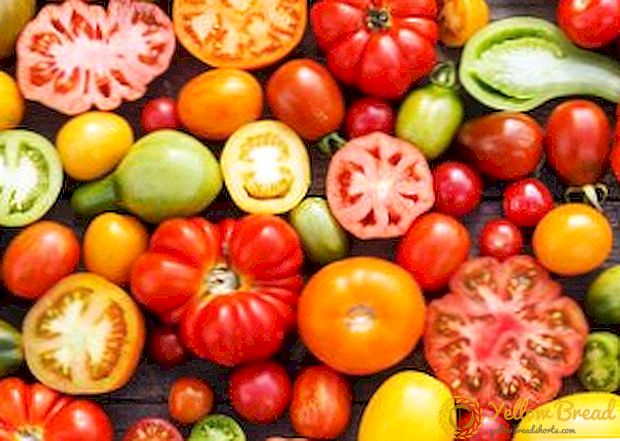 Tomatoes - one of the most popular garden crops, and the emergence of new varieties, according to reviews, immediately attracts the attention of the owners of dacha plots and farmers. In this article we will get acquainted with tomato "Abakansky pink", description of the variety and its characteristics, photos, the ability to grow in different regions.
Tomatoes - one of the most popular garden crops, and the emergence of new varieties, according to reviews, immediately attracts the attention of the owners of dacha plots and farmers. In this article we will get acquainted with tomato "Abakansky pink", description of the variety and its characteristics, photos, the ability to grow in different regions.
- Description
- Bushes
- Fruit
- Characteristic variety
- Advantages and disadvantages
- Planting tomatoes
- Peculiarities of care
- Diseases and pests
Description
"Abakan Pink" was developed in the Altai Territory, adapted for survival in regions with a cold climate, for its taste qualities it is rightfully considered to be the pearl of Siberian selection. Bred on the basis of the variety "Siberian Garden" breeders of the company "Lance".
Bushes
The variety has high bushes that form several sturdy stems that require support: the height of the stems reaches two meters. Stems pubescent, grow straight, and allow side shoots, which can be removed with a pinch. On average, form up to six brushes with fruits in the amount of five or seven pieces. 
Fruit
The fruits are similar in shape to the "Bull's Heart" variety, large, on average from 200 to 500 grams, can reach 800 grams, the ribbing is weakly expressed. Sometimes on one bush, both rounded and heart-shaped fruits coexist. Ripe fruits are saturated pink color, with more than six nests, the flesh is sugary, dense and fleshy. The number of seeds is small. 
Characteristic variety
The Altai variety is considered to be middle-late: ripening begins 110-120 days after planting, and the entire summer period continues. Tomato "Abakansky pink" bears fruit equally well in a greenhouse and in conditions of open ground, it has a good yield: up to five kilograms of harvest is collected from a square meter. In greenhouse conditions, the height of the bush is much higher than when grown on open ground.  When ripe, the fruits do not crack and are well transported. In general, it is considered a salad type of tomatoes, but the rich aroma and mild taste, a large amount of sugar in the composition make it possible to use it in the manufacture of sauces, juices, various kinds of preserves, and even for jam.
When ripe, the fruits do not crack and are well transported. In general, it is considered a salad type of tomatoes, but the rich aroma and mild taste, a large amount of sugar in the composition make it possible to use it in the manufacture of sauces, juices, various kinds of preserves, and even for jam.
Advantages and disadvantages
Among the undoubted advantages are the following qualities:
- the culture is resistant to pests and diseases;
- has a long period of fruiting, which allows you to harvest all summer;
- fruits are large, with high taste, without rigid seed walls;
- relatively high yield and weight of fruits;
- well transported and stored, have an excellent presentation.
 According to those who planted this variety, it has practically no flaws. To the minus varieties of tomato "Abakansky pink" include only the need for a garter and pasynkovaniyu.
According to those who planted this variety, it has practically no flaws. To the minus varieties of tomato "Abakansky pink" include only the need for a garter and pasynkovaniyu.Planting tomatoes
Sowing of tomatoes for seedlings in view of the climate in the region is carried out from the end of February to the end of March. The seeds are treated with a solution of manganese and soaked in a growth stimulator for twelve hours.
Put in a razassny boxes, covered with a film and put in a warm place. As an earth mixture used soil for vegetable plants.While the seedlings are growing, it is regularly, but watered moderately, removing weak sprouts.
Transplantation in open ground is carried out when the ground is warm enough (May), for precaution, seedlings are covered with a film in case of return frosts. 
When planting, it should be noted that the bushes grow: three bushes are enough per square meter. When growing in a greenhouse, note that the temperature should not exceed 30 ° C, the seedlings need regular ventilation.
Peculiarities of care
Since the variety is prone to branching, you need to follow the side shoots: remove them in time, forming a bush in two stems. The supports should be prepared in advance, the stems of the variety are thin and can crack under the weight of the ovaries or with a gust of wind.
Watering is needed regularly, avoid overflows and nitrogen supplements during the growing season, otherwise the bushes will begin to grow and instead of ovaries build up deciduous mass.  For irrigation use water at room temperature, necessarily separated or rain.Regular irrigation - once or twice a week, the soil in the circle should be moistened, but without excess. Young bushes need three liters under a bush, adults and high - up to 10 liters. Water only under the root in the early morning.
For irrigation use water at room temperature, necessarily separated or rain.Regular irrigation - once or twice a week, the soil in the circle should be moistened, but without excess. Young bushes need three liters under a bush, adults and high - up to 10 liters. Water only under the root in the early morning.
Simultaneously with irrigation, loosen the soil to provide the roots with oxygen and remove the weeds.
Top dressings can be used both organic, and mineral. For the first time feed a tomato after planting in a permanent place. Total for the season you can stay on four dressings. If you use liquid organic matter (bird droppings, grass infusion or mullein), water under the bush, you can cover the top with mulch.
If you notice that the ovaries of the next crop fall off - the tomatoes lack complex fertilizers with trace elements such as boron and magnesium.
Diseases and pests
Tomato "Abakansky pink" differs strong immunity to diseases and pests - if you follow the rules of crop rotation, then you will not have to worry.
During the vegetative period, Colorado beetles can sow on seedlings. To combat them, you can use environmental "grandfather's" methods:
- After planting seedlings, sprinkle fresh rows of sawdust between the rows - it is noticed that beetles bypass such areas.
- You can powder planting wood ash, it is better in the morning, when it is still wet after dew.
- Good help in the fight against insects decoctions of sunflower, celandine and walnut husks.
 At the beginning of development, seedlings can be treated with any pesticides, which will also deter pests.
At the beginning of development, seedlings can be treated with any pesticides, which will also deter pests.Tomatoes are not just popular - today no kitchen of the world can do without these vegetables, and the variety of dishes is difficult to imagine. Grown on their own bed, personally collected bright and juicy fruits will decorate your table in the summer and in the winter. 

